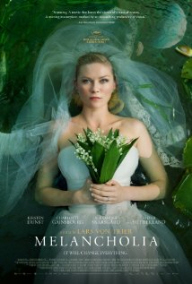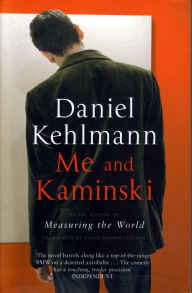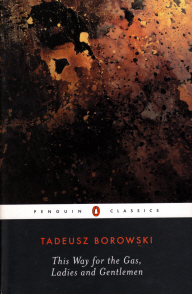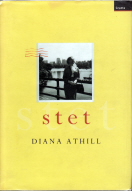 There’s a revealing passage about 200 pages into this novel. In a flashback sequence McEwan’s protagonist Michael Beard is starting his third year at Oxford, when he hears about a promisingly sexy undergraduate called Maisie Farmer. Maisie is reading English, specializing in John Milton. Knowing nothing about literature (he is Maths and Physics), Beard takes a week off and crams as much of Milton as he can manage. Later contriving a meeting with her, Beard dazzles his intended with a tear-wrenching recital of Milton’s poem ‘Light’. He follows this up moments later with the gift of a calf-bound 1738 edition of Areopagitica. Unsurprisingly, he is soon in the young lady’s bed.
There’s a revealing passage about 200 pages into this novel. In a flashback sequence McEwan’s protagonist Michael Beard is starting his third year at Oxford, when he hears about a promisingly sexy undergraduate called Maisie Farmer. Maisie is reading English, specializing in John Milton. Knowing nothing about literature (he is Maths and Physics), Beard takes a week off and crams as much of Milton as he can manage. Later contriving a meeting with her, Beard dazzles his intended with a tear-wrenching recital of Milton’s poem ‘Light’. He follows this up moments later with the gift of a calf-bound 1738 edition of Areopagitica. Unsurprisingly, he is soon in the young lady’s bed.
The scene is uncannily similar to one in the film Groundhog Day. In this, Bill Murray cynically uses his unnaturally acquired knowledge of Andie MacDowell’s tastes and preferences to try to impress her. Murray quotes (in French) from recently crammed memory a few lines from MacDowell’s favourite poem. They too end up in bed together.
The passage in Solar is interesting for two reasons. Firstly, because it is the sort of territory McEwan has visited before. Here he is once again, aware or half-aware, lifting images or making vague quotations from other people’s works. McEwan, along with several million other people, must have admired the witty contrivances of the Groundhog Day script. Audience familiarity of this sort, in the world of the supposedly challenging literary novel, breeds contentment. Much of the success of McEwan’s writing must be based on this comforting quality: readers seem instinctively to recognize and understand his images, already half-digested from somewhere else. It makes him into a reassuring, undemanding writer.
He has now done the reworking trick so many times that it is beyond accident: he is routinely careless with his sources (admitting once in a TV interview that he fills his notebook with all sorts of odd quotes and references, many of which he has written himself, but many more of which he copies down from other writers). This bad practice became apparent early on his career. It is not formal plagiarism, but in some respects is even worse – it makes him imaginatively secondhand. There was the story ‘Dead as They Come’ (1978) referencing J. G. Ballard’s 1976 story from the magazine Bananas, ‘The Smile’. McEwan’s novel The Cement Garden (1978) was compared by many to Julian Gloag’s Our Mother’s House (1963). Most notoriously of all, there were the rather too many line-by-line comparisons between certain passages of his novel Atonement (2001) and sections from Lucilla Andrews’ autobiography, No Time for Romance (1977). All this is too close for comfort, and every time it becomes apparent that he has done it again McEwan is diminished by it.
The second reason for our being interested is because it suggests something of the way in which McEwan crams for his own novels. Ever since Enduring Love (1997), McEwan has been including chunks of acquired knowledge in his books. He is no more a science writer (Enduring Love) or a neurosurgeon (Saturday, 2003) than he is a physicist (Solar), but there are many pages of specialist vocabulary, jargon and other references in all of these. Clearly, he has to go and look these things up, or perhaps he meets useful or important people over dinner who then invite him to sit in on a brain operation, or slam around the Arctic on a snowmobile for a week. All novelists research their material but some do it more than others. Historical novelists, for instance, also go in for this kind of mechanically acquired research, and the worst ones in that genre cannot resist downloading and pasting in every last drop of discovered information, however irrelevant to the characters or the story.
Because McEwan can actually write good English, his version of this kind of borrowed material is phrased well enough, but a good style cannot prevent it being dull, irrelevant to the novel, unenlightening of the character and, above all, obviously crammed. And with what intention? Is the author’s motive as cynical as his character’s, to give us a calf-bound copy of scientific mumbo-jumbo, to make us misty-eyed with emotion and surrender our doubts?
Let us move on to a different but not entirely unrelated matter. At the Hay Festival in 2008, McEwan gave a reading from work-in-progress. It transpired that the passage was from this novel, Solar. I was not present, but I heard about it on a couple of blogs by people who had been there and who were eager to mock the great man because of it. According to them the dubious passage concerned an encounter on a train, with two men (Beard, and a stranger) eating potato crisps from the same packet, each thinking that it was his own packet and the protagonist only discovering afterwards that he was the one who had been mistaken. Although at this stage the report of McEwan’s use of this story was for me clearly only hearsay, the extract certainly appears in the finished novel, on pp 121-127 of the Cape edition.
Now, hearsay or not, when I read about this my instinct was one of embarrassment for McEwan. I had first heard this story (which actually involved chocolate biscuits, not potato crisps) from Douglas Adams. He told it to me in 1980 as a true anecdote, something that had happened to him at Cambridge station while waiting for a train. I was amused by it and in all probability repeated it to other people. Not long afterwards I realized that it had all the qualities of an urban myth and although I trusted and believed what Douglas had told me, I soon discovered there were several variants of the story going the rounds. Whether or not it had ‘actually happened’ was irrelevant: it was in vernacular circulation.
I was embarrassed for Ian McEwan because by reading this story aloud at a public meeting he was obviously proud of it, presenting it as an attractive example of his current work. But didn’t he realize what it was? It seemed to me that here was another example of him borrowing someone else’s stuff, but this time in a way obvious to so many that he would only be humiliated by it. However, I also believed that the hostile comments from those bloggers, and other people who were aware of what had happened, would bring it home to McEwan in the nick of time so he could cut the terrible scene from his novel.
As I say, pp 121-127 bear testament to the fact that he did not cut it. Those are seven awful and unoriginal pages. What he did was much worse, unheeding of the advice that when you’re in a hole you should stop digging, and he tried to patch it up. Twenty pages after the crisp encounter, the character Beard makes a speech to a conference. Here we go into a long cut-and-paste use of the author’s research notes, a rather simplistic discourse on the problems of global warming. Bad enough on its own (and tiresomely long), but McEwan adds an extra twist. He puts into Beard’s mouth a second telling of the crisp-eating encounter, then as a peroration contrives some moralistic point from it about the follies and assumptions of industrialism.
McEwan therefore not only reminds us of his own casual use of an urban myth, he underlines its presumed importance. However, at this point it becomes clear that McEwan had been made belatedly aware of his crisp-eating folly, because a new character, one Mellon, suddenly appears and apprises Beard of the urban myth. Mellon voices the objections one would have: he even quotes the Douglas Adams connection, and names it with the title by which it is known to those who collect and categorize urban myths: ‘The Unwitting Thief’. Beard responds with what one might call the Douglas Adams Defence – that against all likelihood, and by some amazing coincidence, this urban myth had actually happened to him. It was real. (Therefore, McEwan’s argument appears to be, all the moralizing was justified.)
But it’s not real, is it? When McEwan wrote it he clearly thought of it as something that actually happened to his character Beard. McEwan had heard the story from someone, then in his habitual manner transferred it undigested into his fiction. Belatedly, perhaps months later, or when someone at the publisher pointed it out, he realized he had been caught out again in the semi-plagiarism that so diminishes him, and he tried to justify it from the mouth of one Mellon.
Ian McEwan presents a peculiarly difficult problem to those of us who see the novel as a demanding, interesting and challenging artistic form. He is clearly gifted: his use of English is always good and at times his prose is excellent. (He’s a much more rounded stylist than, say, Julian Barnes.) But a good style is not enough: compared with writers like Roberto Bolaño, Emmanuel Carrère, Steve Erickson or Daniel Kehlmann, McEwan is timid, unadventurous and derivative. Furthermore, he seems now to be entering the old-age period of being a novelist: making an attempt to sum things up, trying to tackle the issues of the day, showing his awareness of politics and the state of the nation, being obeisant to those who will reward and honour him, and displaying a witless desire to be seen as a sort of semi-critical, but always courteous, member of the establishment. None of this should be the concern of a novel, except incidentally. The role of an artist is impossible to pin down, but it doesn’t include forelock tugging to prime ministers or literary nabobs.
As for his semi-plagiaristic activities, they are to his lasting shame. He should question everything he hears before he notes it down for future use – he should digest it, subvert it, re-imagine it, make it his own.
McEwan clearly now seeks the consensus and has been amply rewarded for it, but perhaps he should from time to time remind himself what his real interest in writing is, or at least used to be. The young McEwan was or seemed to be a gratifyingly anti-establishment writer, who was blessed with a peculiar and slightly nasty imagination, and a gift for the telling image. All that has gone. In this long, tame and often dreary narrative it is hard to glimpse what he once might have become.







